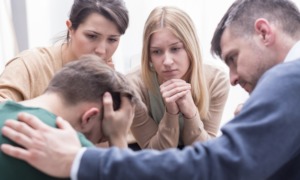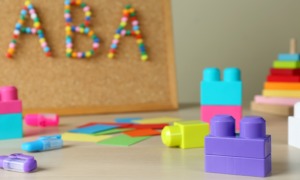By Meklit Gebre-Mariam, 16
L.A. YOUTH, LOS ANGELES
I took health class two years ago in the summer and I’m not sure exactly how to describe it. The class consisted of an excited teacher describing, to a mortified group of students, his sexual experiences from his teens to early adulthood. I can’t remember a single useful thing I learned about sex.
I’ll never forget the day our teacher stood on top of his desk and demonstrated how an Aztec woman gave birth while taking her rage out on her husband. He flailed his arms around like a lunatic, and then we had to endure a few moments of painful silence until the class finally erupted in laughter. But I don’t remember the reason for the detailed display or how it related to the lesson.
We never learned how to put on a condom. We once briefly discussed a few sexually transmitted diseases, but I don’t remember which ones. And at the time, I didn’t mind not knowing. I was 13 and didn’t plan on having sex anytime soon, so why bother learning about it?
Now I’m a junior in high school and Degrassi, a Canadian teen drama on TeenNick, has been my sex education for the last four years. They don’t just briefly mention sex, drugs and alcohol but go into detail. The plots revolving around sex and drugs aren’t made to glamorize them, but to tell the truth. This show became my sex ed because it was so real.
I’m not even sure I ever heard of the STD gonorrhea before one of the characters on Degrassi got it the first time she had sex. Degrassi also changed my views about people with STDs. I had been judgmental – I had assumed anyone who had an STD was a slut. But you can get an STD your first time. Degrassi showed that sex wasn’t some embarrassing thing I couldn’t talk about. But it was still something that I didn’t know a lot about.
What I know about AIDS and HIV – how it’s contracted (through unprotected sex) and how to protect yourself (using condoms, abstaining from sex) – came from ninth-grade biology. One day in class, each student was given a Post-it with either a star or triangle on it. We had to shake hands with five different people and write down each one’s symbol. Shaking hands represented unprotected sex. The triangle stood for HIV. By the end of the period, most of the class had shaken hands with someone with a triangle, symbolizing that they’d “contracted” HIV. It was scary to see how fast it spread. It made me realize how serious and easily contracted HIV is.
Getting information about sex from my family? I live in a Christian home, and I don’t feel comfortable talking to my parents about it. I know if I really wanted to I could ask my mom, but I don’t think I could bear the awkward conversation.
Even though I don’t know a lot, I feel I have more reliable information than my friends who are sexually active. I know girls my age who are sexually active but who don’t know how a condom is supposed to be properly stored. Condoms kept in wallets and glove compartments become easier to break, a fact I learned recently at an L.A. Youth staff meeting (condoms should be stored in a cool, dry place).
My friends don’t understand that people with certain STDs may not know they have them because they don’t have visible symptoms. When I told my sexually active friend she should get tested for STDs, she said the guy she did it with “doesn’t have any.”
“Did he tell you he was a virgin?” I asked.
“He’s not,” she replied.
“Then why would you think he doesn’t have an STD?”
“There was nothing,” she said, a little annoyed. I dropped the conversation, but it bothered me. Her “there was nothing” implied “it didn’t look like he had one,” which wasn’t good enough for me. I get that it’s scary to take a test, but it’s even scarier to find out you have an STD that you could have been treated for earlier.
But television doesn’t cover everything. I still have a ton of questions. Why are condoms only 98 percent effective? When they say condoms slip, is it because it wasn’t put on correctly, or is it because the condom itself is slippery? Why do some girls find that sex hurts the first time and others do not?
I should have had better sex ed. And it’s not just me, many of my friends didn’t learn much in their sex ed classes either. I should have had a sex ed class that had in-depth discussions about STDs and the different ways teens can protect themselves. We should have had someone come from Planned Parenthood to explain the different services offered for teens at a health clinic. In the end, we should have been well-informed and confident about the information we had learned.
Why do I want my questions to be answered? The closest example I can come up with is an earthquake. You’re not expecting an earthquake, but you have canned food and bottled water, so at least you know you’ll be prepared for one. If my questions are not answered now, then when? I don’t know about everyone else, but I’d rather not be up the night before my wedding reading Sex for Dummies.
© 2010 L.A. Youth, the newspaper by and for Los Angeles Teens. http://www.layouth.com.






























